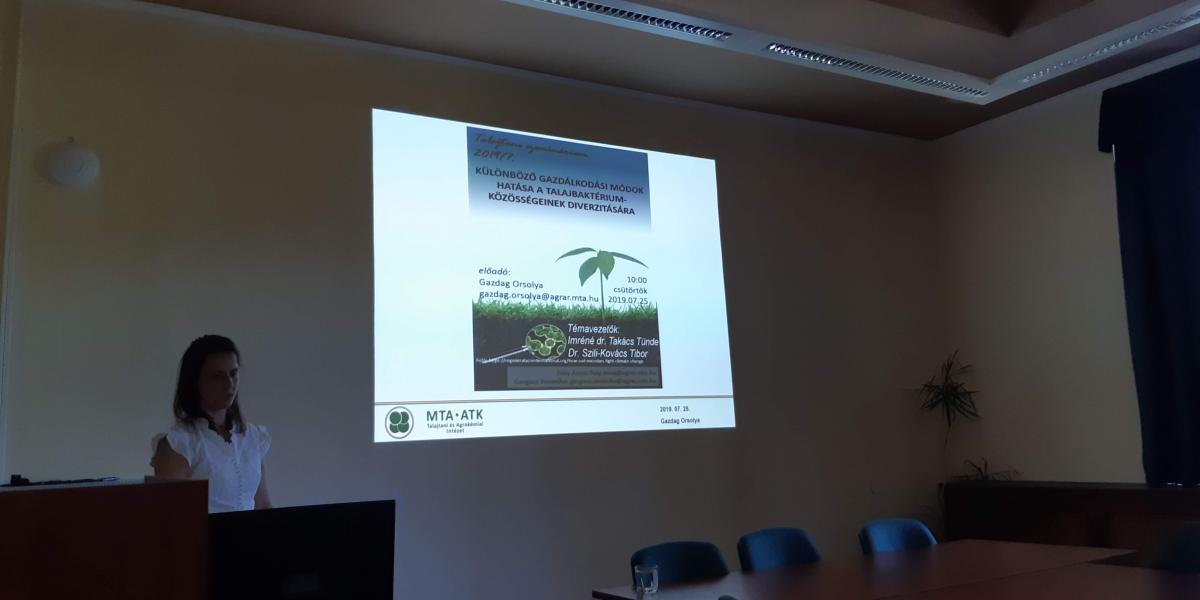Presenter: Orsolya Gazdag, Department of Soil Biology
The soil microbe community is a key factor in the agricultural ecosystem services of soils, as it affects quality and quantitative food production and the vitality of cultivated crops. In order to maintain soil health, it is particularly important to place appropriate emphasis on the choice of a specific agricultural method tailored to the possibilities of the agricultural area in particular, taking into account the type of soil, its main physical and chemical parameters, etc. Comparative complex microbiological studies involving different soil types and cultivation methods are fundamentally absent in Hungary.
The selection of soil biology indicator variables is key to this, which has been investigated by the use of the so-called minimum data set (MDS) in the evaluation of soil quality.
In the presentation, I will demonstrate the composition and functionality of the soil microbe community in ecological and conventional cultivation studies of 3 domestic soil types tested in a complex experiment (with an extended minimum data set approach) with classical status and functional studies. The aim of the presentation is to draw attention to the fact that multi-criteria analysis is essential for an in-depth understanding of the role of soil microbe communities in the rhizosphere (functions, performance indicators) and the sustainability of the particular tillage method. All these can provide important reference data in the assessment of soil quality, soil fertility and the indication of degradation processes.

